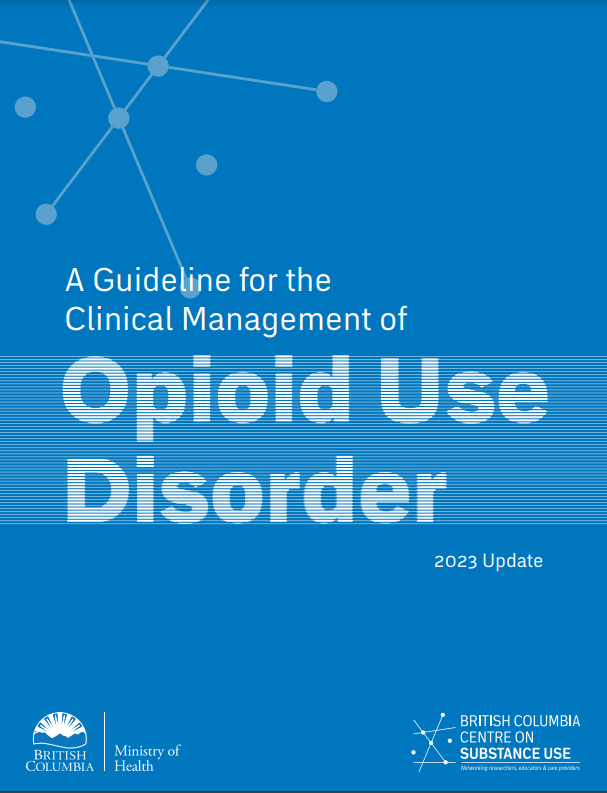In the context of the current public health emergency, the BC Centre on Substance Use has developed provincial evidence-based guidelines articulating the full range of therapeutic options for the optimal treatment of adults and youth with varying presentations of opioid use disorder. These guidelines are intended for use for all BC physicians, nursing and allied health professionals, and other care providers involved in the treatment of individuals with opioid use disorder. While this guideline supports the diversity of possible treatments available for individuals with opioid use disorder, it strongly recommends against a strategy involving withdrawal management alone, since this approach has been associated with elevated risk of HIV and hepatitis C transmission, elevated rates of overdose deaths in comparison to providing no treatment, and nearly universal relapse when implemented without plans for transition to long-term evidence-based addiction treatment (e.g., opioid agonist treatment). However, this guideline also acknowledges the importance of strengthening the residential treatment system with a view to aiding individuals seeking long-term cessation of opioid use who do not wish to pursue pharmacological treatment, but may still wish to use other various pharmacotherapies for symptom management during withdrawal.

